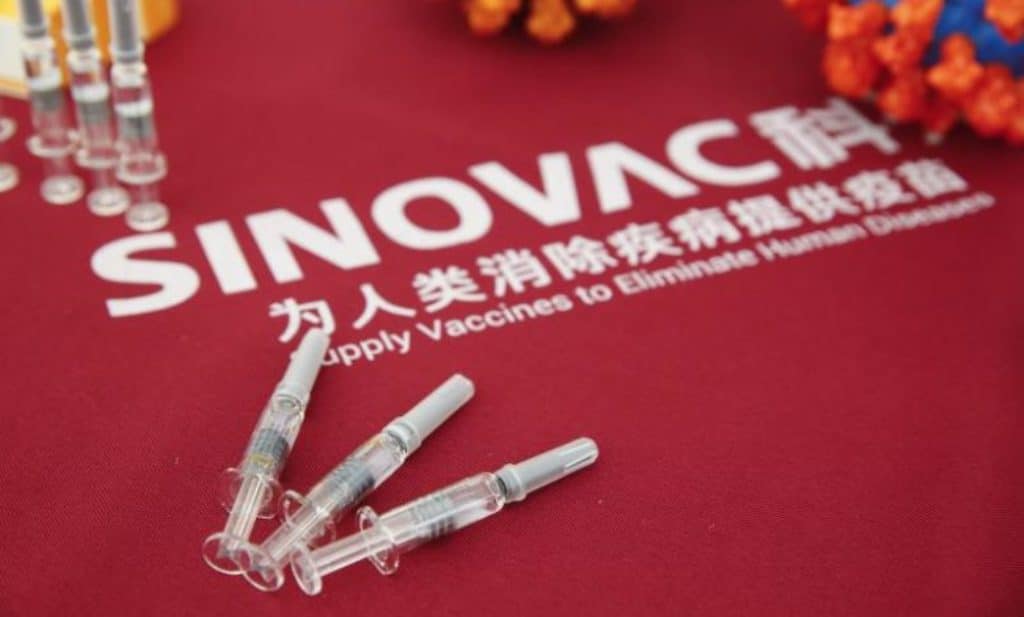Health
Patients Suffer from Partial Paralysis After Receiving Sinovac Vaccine

Thailand’s health ministry is once again facing controversy over its use of China’s Sinovac vaccine after patients suffered adverse symptoms to the vaccine. Seven people have suffered from partial paralysis after receiving the Sinovac vaccine, a doctor from Chulalongkorn University said.
Dr Thiravat Hemachudha, director of the Health Science Centre of Emerging Diseases at Chulalongkorn University’s faculty of medicine, posted on Facebook on Tuesday that six of them were in Rayong and one at the Queen Savang Vadhana Memorial Hospital in Chon Buri’s Sri Racha district.
Their conditions from the Sinovac vaccine improved after doctors administered medication to dissolve blood clots, Dr Thiravat posted. The hospitals had reported their conditions to the Public Health Ministry, he wrote. Their conditions might have been caused by certain lots of vaccines, not by all of the vaccines, he said.
The latest wave of Covid-19 is highly contagious with more severe cases expected in intensive care units (ICU), another doctor from Chulalongkorn Hospital said.
Risk of severe symptoms
Dr Opass Putcharoen, chief of King Chulalongkorn Memorial Hospital’s Centre of Emerging Infectious Diseases, also posted on Facebook on Tuesday that the latest wave is more severe than the two previous rounds as has been proven by more than 200 cases at the hospital.
In the first wave of infections, the virus in a patient’s body would decline after seven days. Even though a patient tested positive after a PCR test, the virus could not be cultured, he said. But in the latest wave of transmissions, the virus could still be cultured after 10 days, which means it can remain in the body for longer, Dr Opass said. Unlike previous rounds, an increasing number of young people have suffered from pneumonia, he said.
He went on to say that in the previous rounds, patients at risk of severe symptoms would show signs after seven days of being infected. But in the new wave, they show signs of severe symptoms after less than a week, which requires a quicker diagnosis of pneumonia and the administration of medication, Dr Opass said.
There is more of the virus as well as congestion in the nasal cavity, which leads to an easy spread of the virus, he said, adding that from this week, more severe cases are expected in ICUs.
What happens now is consistent with the information regarding the spread of the UK variant B117 in the UK, Dr Opass said. He said measures to reduce the risk of fatalities include preventing the transmission in communities by trying to achieve a broader distribution of vaccines.
Colour coding covid-19 patients
Dr Taweesilp Visanuyothin, spokesman for the Centre for Covid-19 Situation Administration, on Tuesday reported 1,443 new cases of the novel coronavirus, raising the total number of confirmed infections since the start of the pandemic to 45,185. Of the 16,119 patients currently being treated, 223 are severely ill, with 55 on respirators, Dr Taweesilp said.
As for a policy to transfer patients to treatment facilities in Bangkok, the patients are divided into three colour-coded groups. The green group includes people who were detected from active case-finding and were asymptomatic or showed minor symptoms.
The yellow group are patients who have no severe symptoms but have breathing difficulties, with underlying health problems, or weigh over 90 kilograms. They will be transferred to hospitals, he said.
The red group are patients who have shortness of breath, with an x-ray examination showing severe pneumonia. They will be transferred to hospitals, Dr Taweesilp said.
Source: Bangkok Post, Facebook






























